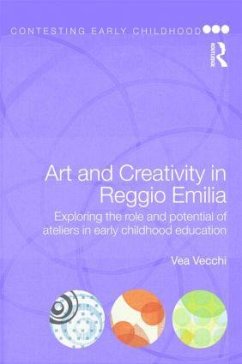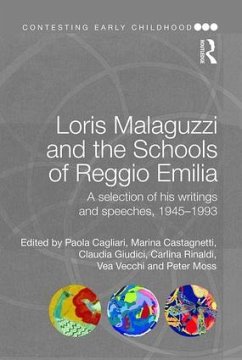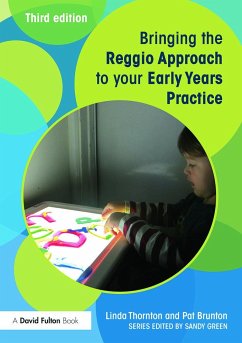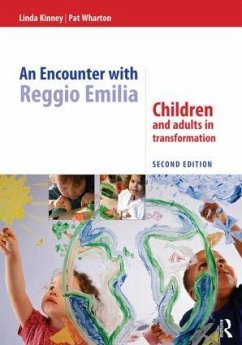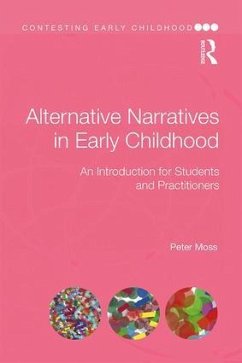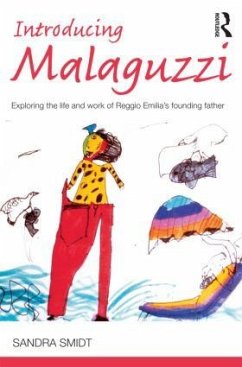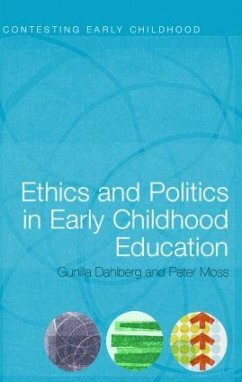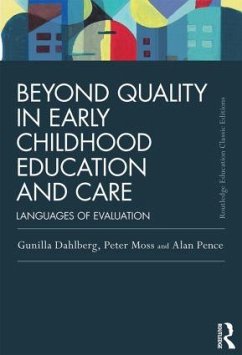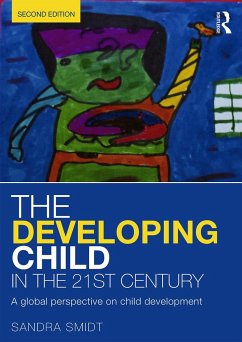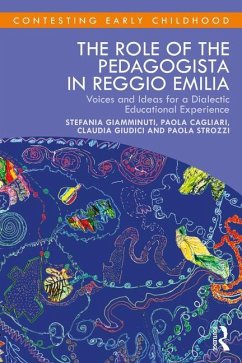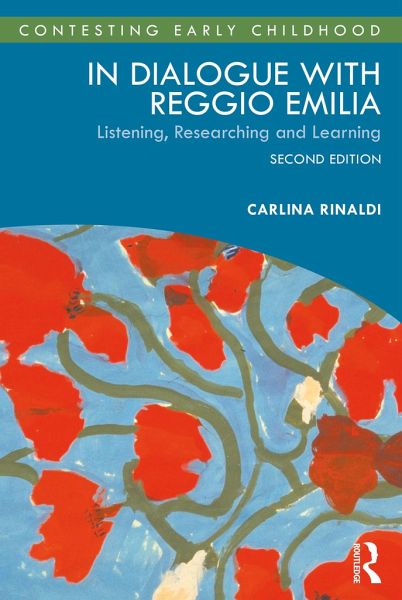
In Dialogue with Reggio Emilia
Listening, Researching and Learning
Versandkostenfrei!
Versandfertig in 6-10 Tagen
32,99 €
inkl. MwSt.
Weitere Ausgaben:

PAYBACK Punkte
16 °P sammeln!
Reggio Emilia's educational services for 0-6 year olds are widely acclaimed as one of the best systems in the world.Now in an updated second edition, In Dialogue with Reggio Emilia offers a collection of the most important articles, lectures and interviews given by Carlina Rinaldi, who was President of Reggio Children for a decade, and pedagogical director of the Reggio Emilia Infant-toddler Centres and Preschools after working closely with Loris Malaguzzi, Reggio Children founder and inspirer of the Reggio Emilia Approach. She is currently President of Fondazione Reggio Children - Centro Lori...
Reggio Emilia's educational services for 0-6 year olds are widely acclaimed as one of the best systems in the world.
Now in an updated second edition, In Dialogue with Reggio Emilia offers a collection of the most important articles, lectures and interviews given by Carlina Rinaldi, who was President of Reggio Children for a decade, and pedagogical director of the Reggio Emilia Infant-toddler Centres and Preschools after working closely with Loris Malaguzzi, Reggio Children founder and inspirer of the Reggio Emilia Approach. She is currently President of Fondazione Reggio Children - Centro Loris Malaguzzi.
With a full introduction contextualising each piece of work, it offers a unique insight into many of the themes that characterise the early childhood curriculum of Reggio Emilia: participation, documentation and assessment; professional development; organisation; research; creativity; spaces and environments in education, and more. This second edition includesbrand new chapters exploring the role of the Loris Malaguzzi International Centre; the natural complexity of becoming children; Rinaldi's speech on receiving the LEGO prize; and Jerome Bruner's friendship with the schools of Reggio Emilia and the author.
A deeply personal book, this is an invaluable resource for practising teachers, students and researchers. It is essential reading for anybody looking to further their understanding of the Reggio Emilia philosophy and pedagogical practice.
Now in an updated second edition, In Dialogue with Reggio Emilia offers a collection of the most important articles, lectures and interviews given by Carlina Rinaldi, who was President of Reggio Children for a decade, and pedagogical director of the Reggio Emilia Infant-toddler Centres and Preschools after working closely with Loris Malaguzzi, Reggio Children founder and inspirer of the Reggio Emilia Approach. She is currently President of Fondazione Reggio Children - Centro Loris Malaguzzi.
With a full introduction contextualising each piece of work, it offers a unique insight into many of the themes that characterise the early childhood curriculum of Reggio Emilia: participation, documentation and assessment; professional development; organisation; research; creativity; spaces and environments in education, and more. This second edition includesbrand new chapters exploring the role of the Loris Malaguzzi International Centre; the natural complexity of becoming children; Rinaldi's speech on receiving the LEGO prize; and Jerome Bruner's friendship with the schools of Reggio Emilia and the author.
A deeply personal book, this is an invaluable resource for practising teachers, students and researchers. It is essential reading for anybody looking to further their understanding of the Reggio Emilia philosophy and pedagogical practice.





